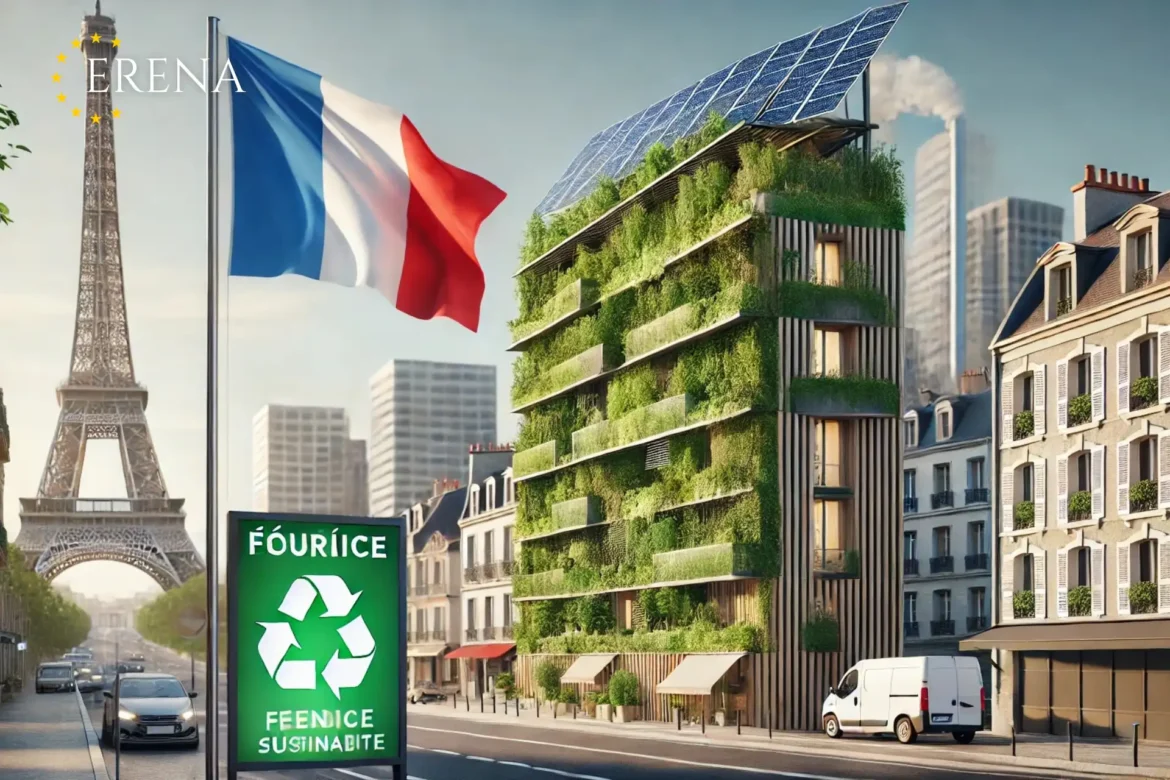France actively develops green technologies in construction, seeing them as a key tool in combating climate change and achieving sustainable development. The introduction of environmentally friendly solutions helps reduce the carbon footprint, improve the energy efficiency of buildings, and promote the rational use of natural resources. State support plays a crucial role in encouraging developers and construction companies to adopt innovations aimed at environmental protection.
The goal of state policy is to create favorable conditions for transitioning to environmentally sustainable construction. This includes implementing energy efficiency standards, providing financial aid for innovation, and creating new jobs in the green technology sector. This text explores the main measures supporting green technologies in construction in France and their impact on the industry.
Key Initiatives and Programs
1. RE2020: The Environmental Standard of the Future
One of France’s key initiatives is the introduction of the RE2020 environmental standard (Réglementation Environnementale 2020). This standard replaced the previous RT2012 and set stricter requirements for building energy efficiency.
Key provisions of RE2020:
• Reducing energy consumption: Buildings must minimize the use of fossil fuels and be as energy-efficient as possible.
• Carbon footprint accounting: The carbon footprint is assessed throughout the building’s lifecycle, including construction and operation phases.
• Integration of renewable energy sources: Mandatory use of solar panels, heat pumps, and other technologies.
The RE2020 standard encourages the use of innovative materials, such as biomaterials and recycled construction materials, and technologies that reduce environmental impact.
2. Financial Support: Funds and Subsidies
The state provides significant financial support for projects aimed at implementing green technologies in construction:
• The Energy Transition Fund finances projects for modernizing existing buildings and developing energy-efficient solutions.
• MaPrimeRénov’: A financial assistance program for homeowners to insulate homes, install solar panels, and transition to heating systems powered by renewable energy.
• Eco-renovation loans: Interest-free loans for implementing energy-efficient solutions for individuals and companies.
3. Urban Eco-Districts
France actively promotes the concept of eco-districts (eco-quartiers), which represent sustainable urban spaces integrating green technologies. These projects include:
• Use of renewable energy sources to power residential and commercial buildings.
• Rational water resource management, including rainwater harvesting and wastewater treatment.
• Creation of green infrastructure, such as parks, green roofs, and systems for overheating prevention.
Eco-districts serve as demonstration platforms for new technologies and play a key role in urban policy.
4. Tax Incentives
The state provides tax benefits for using green technologies and environmentally friendly materials. Programs include:
• Reduced tax bases for developers using energy-efficient solutions.
• Incentives for companies developing and producing eco-friendly construction materials.
Public-Private Partnerships
Support for green technologies is possible through effective collaboration between the state and the private sector. Key areas of this partnership include:
• Energy Service Contracts (ESCO): Companies and the government jointly finance projects to improve building energy efficiency.
• Investment Grants: Government grants for construction companies and startups working on innovative technologies.
• Educational Programs: Training specialists in environmentally friendly building practices.
Impact on the Construction Sector
Support for green technologies significantly influences the development of the construction sector in France. Key changes include:
1. Innovations in Construction The use of smart technologies, such as energy management systems, eco-friendly materials, and construction methods minimizing waste.
2. Economic Benefits Energy-efficient buildings reduce operational costs for heating, cooling, and lighting, making them attractive to investors and tenants.
3. Employment Growth Green technologies create new jobs in producing eco-materials, installing renewable energy equipment, and designing energy-efficient buildings.
4. Increased Awareness Citizens and companies recognize the importance of sustainable development, driving demand for eco-friendly solutions.
Challenges and Issues
Despite successes, implementing green technologies faces several challenges:
• High Initial Costs: Many technologies require significant investments, which can be inaccessible for small businesses and individuals.
• Lack of Skilled Workers: Specialized knowledge and training are needed to work with new technologies.
• Regional Disparities: In many rural areas, access to technologies and financial programs is limited.
Examples of Successful Projects
Several projects in France demonstrate the effectiveness of green technologies:
• Tour Elithis in Dijon: A residential skyscraper producing more energy than it consumes.
• Confluence Eco-District in Lyon: A sustainable urban space with solar panels, green roofs, and rainwater collection systems.
• Energy-Efficient Homes in Grenoble: Residential buildings with solar panels and geothermal heating.
Conclusion
France leads in promoting green technologies in construction. Programs such as RE2020, MaPrimeRénov’, and eco-district creation contribute to reducing the carbon footprint and fostering sustainable development. However, addressing the challenges of technology accessibility and workforce training is crucial for further progress.
Support for green technologies not only contributes to environmental protection but also improves quality of life, stimulates economic growth, and ensures a future for generations to come. France continues to set high standards, serving as an example for other countries.
Support for Green Technologies in Construction in France
675

